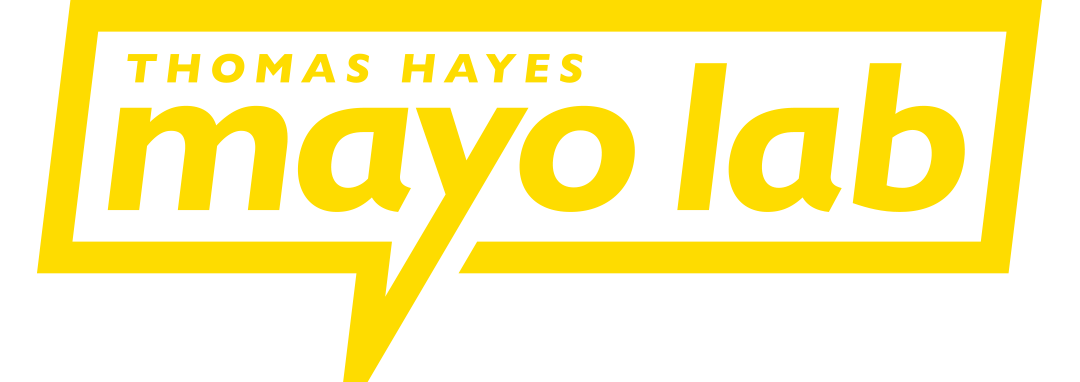Get Comfortable Being Uncomfortable: How Solving the Teen Substance Misuse Crisis Begins at Home
When it comes to tackling the substance misuse crisis affecting American teens, it’s always easy to say that it’s ultimately someone else’s problem. False—yet deep-rooted—myths about who drug users are only perpetuate this harmful assumption.
But recent research has shown how families who stereotypically might be thought to be protected from substance misuse actually are being quite impacted by the crisis.
“Recent studies have shown that it’s flipped. Kids who are coming from parents who are still married together, households who are middle to upper class, are having the most issues with substance misuse and eating disorders and all these other things,” said Alexis Lee, program manager for The Thomas Hayes Mayo Lab, on a recent podcast episode.
The podcast series Inside The Mayo Lab offers a behind-the-scenes look at the work of The Lab. It features conversations between Lee, podcast host David Magee and Dr. Meagen Rosenthal, interim executive director of The William Magee Institute, of which The Mayo Lab is part.
The Mayo Lab’s David Magee and his family discuss their shared story of “addiction, recovery, love, and loss.”
In the same episode, Magee discussed how this tendency for parents to assume substance misuse is someone else’s problem crops up in his talks at schools and universities around the United States. He explained how parents come up to ask how he thinks the crisis can be solved.
“Usually I look back at them … and I say, ‘Well, it starts right here with you,’” Magee said. “‘Because, look,’ I tell parents, ‘I don’t mean to put you in the crosshairs, but I speak from experience, because I made a lot of mistakes.’”
Magee went on to talk about how he came to terms with his own family’s battle with substance misuse, which ultimately resulted in the death of his son, William, from an accidental drug overdose.
So what can parents do differently to change things at home? Though there’s not one easy answer—everyone’s life is different—the solution lies in being authentic, vulnerable, and understanding, said Dr. Rosenthal.
“Part of this is getting ourselves comfortable with being uncomfortable. I know that has become this really weird cliche, but there's truth in that,” she said. “How do we sit and ask… ‘No, really, how are you? Are you okay? Is this going well? Tell me about your day.’”
In addition to The Mayo Lab Podcast and similar storytelling efforts, The Mayo Lab is working to craft a first-of-its-kind K-12 curriculum aimed at starting conversations about substance misuse prevention earlier. This schools program, however, won’t just reach students, Dr. Rosenthal explained.
“We're putting this program together because it doesn't exist right now in any way, shape or form. … This is a program that's going to have a parallel version for grownups, a parallel version for parents of students right now that is talking about similar things, giving our parents a similar set of tools that our young people are getting,” she said.
